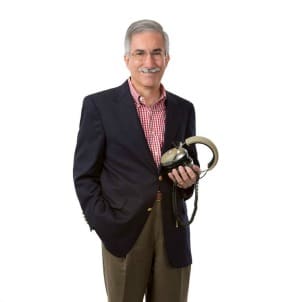
(by John Garziglia) With all of the activity surrounding the imminent January 29th opening of the 250 mile FM translator move window for AM stations, the other proposals made by the FCC in AM revitalization have almost been forgotten. Finally, however, the FCC’s further proposals are published in the Federal Register
This Federal Register publication sets the comment and reply comment dates for the FCC’s further AM proposals as detailed in this Public Notice
The AM revitalization comment and reply comment dates are March 21, 2016 and April 18, 2016 respectively. The AM revitalization proposals being considered are modifications to the AM protection standards including to skywave signals, relaxed distance restrictions on FM translators carrying AM stations, modifications to the partial proof of performance rules and method of moments proofs, and the forced surrender of expanded band or standard band AM licenses. The FCC is also asking for comment upon opening up the AM expanded band to additional applications, and a potential relaxation of the main studio requirements.
There are many proponents, and some opponents, for each of the FCC’s proposals. Comments already filed in response to the FCC’s proposals, as well as comments leading up to the AM revitalization order in MB Docket No. 13-249, can be viewed in the ECFS portion of the FCC’s web site:
One of the FCC’s proposals in particular has the potential to change the AM band as we know it. That is proposal to further diminish skywave protections for the Class A clear channel AM stations.
Granted, my views on AM skywave protection are part nostalgia. I grew up listening to great stations at night on skywave.
But, when AM band characteristics are considered, there is only one thing that the AM band still does well. That one thing, both day and night, is long-distance radio reception from Class A stations. Such long-distance radio reception provides the public with benefits that increasing nighttime service from local stations will not.
The evaluation of whether to further diminish the coverage of Class A AM stations should not be a comparison of whether to do so would serve greater numbers of potential radio listeners. In the case of local stations possibly extending their coverage at night, there is likely the reception in the same area from many other stations. The areas that will lose Class A station coverage at night, however, are often those areas in which there is no other radio reception.
A diminishment of Class A AM station coverage, once done, can never be undone. If an unthinkable national emergency should occur, there could be just one or two Class A AM stations providing essential emergency information to wide swaths of a decimated country. While the potential transmission of emergency information should not completely dictate AM policies, when the AM band is so uniquely suited for such long-distance service, and an AM receiver can still be made from a crystal and simple electronic components, our country should not cavalierly give up such our wide-coverage radio service from Class A AM stations.
Also, if AM ever does transition over to all-digital, wide coverage Class A stations may represent a unique resource to the extent that interference is not dramatically increased.
If you have an opinion about further diminishing the coverage of Class A AM stations, or any other subject in AM revitalization, the FCC is now accepting comments. Your comments may be filed by going to this link to submit a comment in Word or PDF or this link to submit an express comment. The AM revitalization proceeding is MB Docket No. 13-249.
John F. Garziglia is a Communications Law Attorney with Womble Carlyle Sandridge & Rice in Washington, DC and can be reached at (202) 857-4455. Have a question for our “Ask The Attorney” feature? Send to[email protected]






With respect to relaxing the main studio requirements, which is part of that whole discussion, it seems to me that the moving of the public files to on-line further supports that argument. -Bob